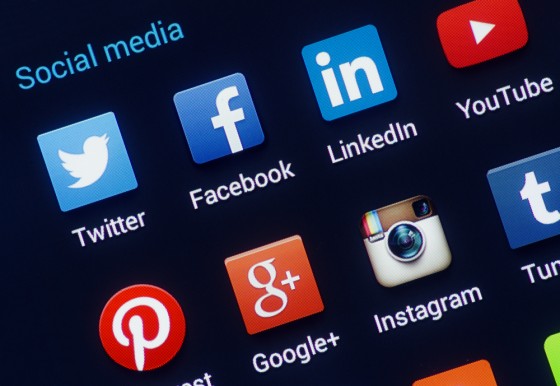 Last month, we focused on Mexico and specifically the state-owned oil company Pemex as a risk for companies selling or investing into Latin America. We saw that Pemex represents a drag on Mexican fiscal accounts and is imposing losses on suppliers and investors. This month, we turn our gaze to Brazil: it is similar to Mexico in that it has a dominant, politically charged state-owned oil company, but different because the scale of the crisis is much more severe, as are the risks to suppliers and investors.
Last month, we focused on Mexico and specifically the state-owned oil company Pemex as a risk for companies selling or investing into Latin America. We saw that Pemex represents a drag on Mexican fiscal accounts and is imposing losses on suppliers and investors. This month, we turn our gaze to Brazil: it is similar to Mexico in that it has a dominant, politically charged state-owned oil company, but different because the scale of the crisis is much more severe, as are the risks to suppliers and investors.
Brazil is undergoing a major economic and political crisis, and its state-owned oil company, Petróleo Brasileiro S.A. (Petrobras), is right at the center of the trouble. Petrobras shares some of the same challenges as Pemex: It started as an entirely state-owned firm, was used as an instrument of government policy from inception and took on enormous quantities of debt in recent times, exemplified by its $11 billion debt issue in 2013—the largest on record for emerging markets.
Brazil, however, recognizing earlier than Mexico the necessity of foreign investment for a viable oil industry, opened up the sector in 1997 and eventually reduced the government shareholding to 64% (direct plus indirect). Petrobras expanded into deepwater areas in Angola and the Gulf of Mexico and became one of the few national oil companies able to equally compete with companies such as Royal Dutch Shell and Total.
In 2014, information about the extent of corruption between Petrobras board members, various politicians and business executives not only came to light, but also sparked official investigations and arrests. President Dilma Rouseff has been temporarily removed from office pending a trial by the Senate. The official charge against her is manipulating the federal budget by directing state banks to support spending programs. She was the chair of Petrobras when the corruption allegedly occurred, however, and she and her party (Partido dos Trabalhadores or PT) are perceived by many as at least partly responsible for the scandal.
It is likely that Rouseff will be permanently removed from office within six months, but the uncertainty does not end there: As of this writing, two cabinet ministers have been removed from office, and six more are under investigation. Dozens of politicians and executives have been convicted in connection with the scandal, and prosecutors have recovered $795 million in stolen money. The economy of Brazil shrank 3.8% in 2015 and is projected to shrink another 3.5% in 2016. Moody’s downgraded Petrobras to Ba2 in December 2015, and S&P cut the sovereign rating to BB with a negative outlook in February. With the Zika virus now causing a global health emergency and the Olympics beginning in August, one wonders how many more stresses Brazil can take before serious political unrest breaks out.
Like with Pemex, the Petrobras crisis is increasing risks to suppliers already: There are trade credit insurance claims stemming from suppliers to Petrobras, and the wider Brazilian economic downturn (combined with the commodity price trough) is giving rise to other credit losses. But the Brazilian crisis goes well beyond trade credit risk. Brazil is a $2.2 trillion economy and one of the largest bond issuers in the emerging markets. As a result, this crisis has global implications: Eurasia Group has Brazil as one of its top 10 global risks for 2016.
Mexico and Brazil are not the only countries dependent on state-owned oil (or other natural resource) companies that are facing major challenges: Venezuela, Ecuador, Nigeria, Angola, Russia—the list goes on and on. In Brazil, however, there are some mitigating circumstances that reveal a silver lining. First, 85% of Brazil’s sovereign debt is held domestically, meaning it is less affected by currency depreciation and is easier to reschedule. Provided Brazil takes on some painful fiscal reforms, the country can dig itself out of the economic crisis. Secondly, so far, officials have been able to investigate and prosecute some of the parties responsible, despite the defendants being some of the more powerful people in Brazil.
There is hope that Brazil’s institutions will emerge all the stronger for being able to correct wrongdoing, which may set the stage for a more just Brazil and a better investment and credit risk environment in the long run. In the meantime, we are likely to see severe market and political volatility. It is a good idea to closely monitor your exposure in Brazil and in other countries dependent on highly indebted state-owned natural resource companies.

 It takes one second to send a Tweet or Instagram post onto the internet for all to see. But for companies active on social media, the legal ramifications of those 140 characters or that one photo can last a whole lot longer.
It takes one second to send a Tweet or Instagram post onto the internet for all to see. But for companies active on social media, the legal ramifications of those 140 characters or that one photo can last a whole lot longer.